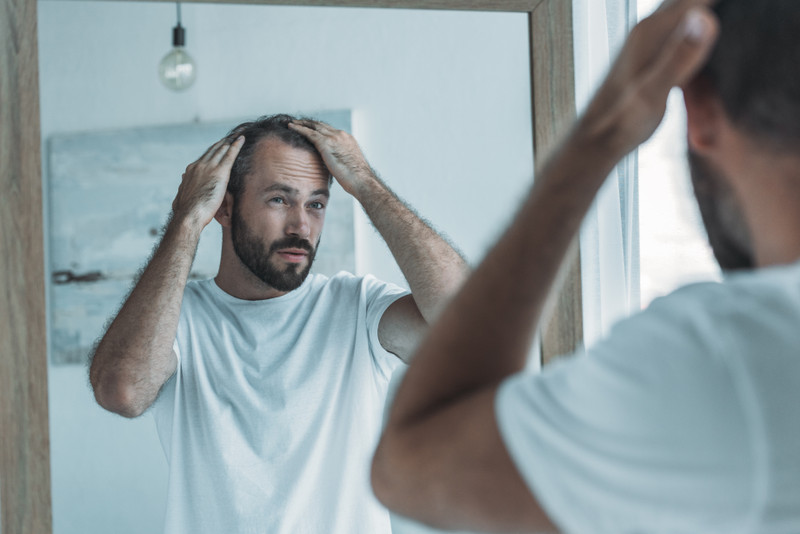In the course of life, some men and women find themselves wishing, hoping for longer, fuller hair. This desire is often a derivative of hair loss. Here, we take a look at what contributes to hair growth, and discuss five supplements that could bolster hair growth.
Nutrition and Hair Growth
When it comes to human physiology, there is a clear relationship between nutrition and hair growth. In fact, your diet plays a role in the health of your hair, skin, and nails alike. A wide variety of vitamins, in addition to healthy fats, carbohydrates, and proteins, all contribute to healthy hair.
Hair consists primarily of proteins, which makes protein immediately relevant for hair to grow and be healthy. While the most common form of hair loss, androgenetic alopecia, is not directly related to protein deficiency, another form of hair loss called telogen effluvium can in fact be linked to protein deficiency.
Furthermore, a lack of either fats or carbohydrates could contribute to the conditions that lead to hair loss. Fats are necessary for preserving moisture in hair. Those on restricted, low-calorie diets might not get enough fats or proteins for healthy hair, or even enough carbohydrates to support the body’s hair-growth process. This is in addition to the effect that mineral deficiencies, such as zinc deficiency, could have on healthy hair.
Nutrients and Herbs for Hair Growth
The following nutrients and herbs have properties that could contribute to your body’s ability to grow hair. Consider how these supplements, in addition to a healthy and varied diet, could support healthy hair growth now and in the days and years to come:
Zinc is a mineral which is one of the foremost contributors to healthy hair growth. Alopecia (the technical term for hair loss) can often occur as a symptom of zinc deficiency. There is a body of research supporting the use of a zinc supplement in order to remedy hair loss and promote hair growth. For any individual who is experiencing hair loss and is also experiencing other complications related to zinc deficiency, supplementing with zinc is almost guaranteed to be of help. A dose of 50mg of zinc daily is recommended for men and women.
Biotin, also called vitamin B7, is one of the vitamins which plays a meaningful role in the health of your hair. Having enough biotin is important because biotin contributes to the structural integrity of keratin, one of the foremost proteins which hair consists of. Supplementing with biotin has the potential to improve both hair volume, and scalp coverage, most especially if you are deficient in this vitamin.
Vitamin E has been recognized for some time for its general benefit to human health, including hair and skin. In recent years, it has received more attention for its specific ability to support healthy hair. Research in the last 15 years has linked vitamin E supplementation and an improvement in hair growth in individuals who experience hair loss. This benefit is likely due to vitamin E’s antioxidant properties, which can reduce the oxidative stress that often contributes to hair loss. Other research ties this benefit to vitamin E’s ability to support healthy blood flow in the scalp.
Panax ginseng, sometimes called Korean ginseng, is an herb with a history of medicinal use in Asian countries. Otherwise known for its ability to mitigate inflammation, support the immune system, and more, panax ginseng works at the subcellular level to support the health of hair follicles. Research has shown that supplementing with ginseng improved hair growth in those with a certain type of alopecia when combined with standard corticosteroid treatment. Ginseng’s benefit to healthy hair follicles could be of great benefit for hair growth.
If you or your spouse are experiencing hair loss, consider how these basic nutrient supplements, along with a ginseng herbal supplement, could be of meaningful help. It’s recommended that you talk to your doctor before trying any supplement.

